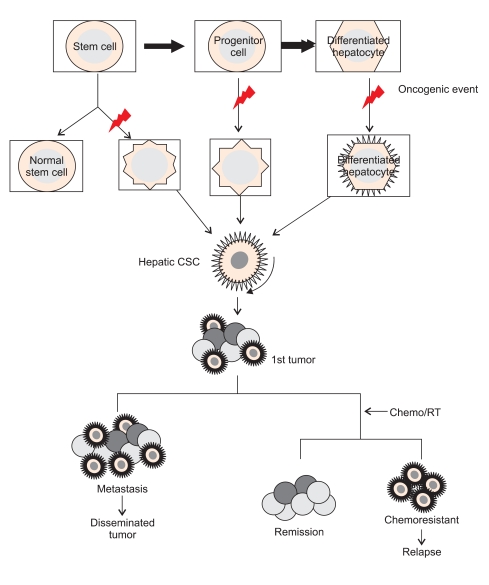Fig. 3.
The roles of hepatic cancer stem cells (CSCs) in tumorigenesis and treatment resistance in hepatocellular carcinoma. Normal stem cells self-renew and can differentiate into progenitor cells, which eventually differentiate into fully differentiated hepatocytes. CSCs can arise from normal stem cells, progenitor cells and even differentiated hepatocytes when oncogenic events occur during cellular processes. The expansion of hepatic CSCs results in the formation of the primary tumor, which is composed of a heterogeneous mass of cancer cells. The unlimited proliferation of hepatic CSCs promotes tumor growth and can give rise to distant metastases that occur in conjunction with the angiogenic process. When chemotherapy or radiotherapy is used, hepatic CSCs play an essential role in treatment resistance and can produce tumor recurrence.

